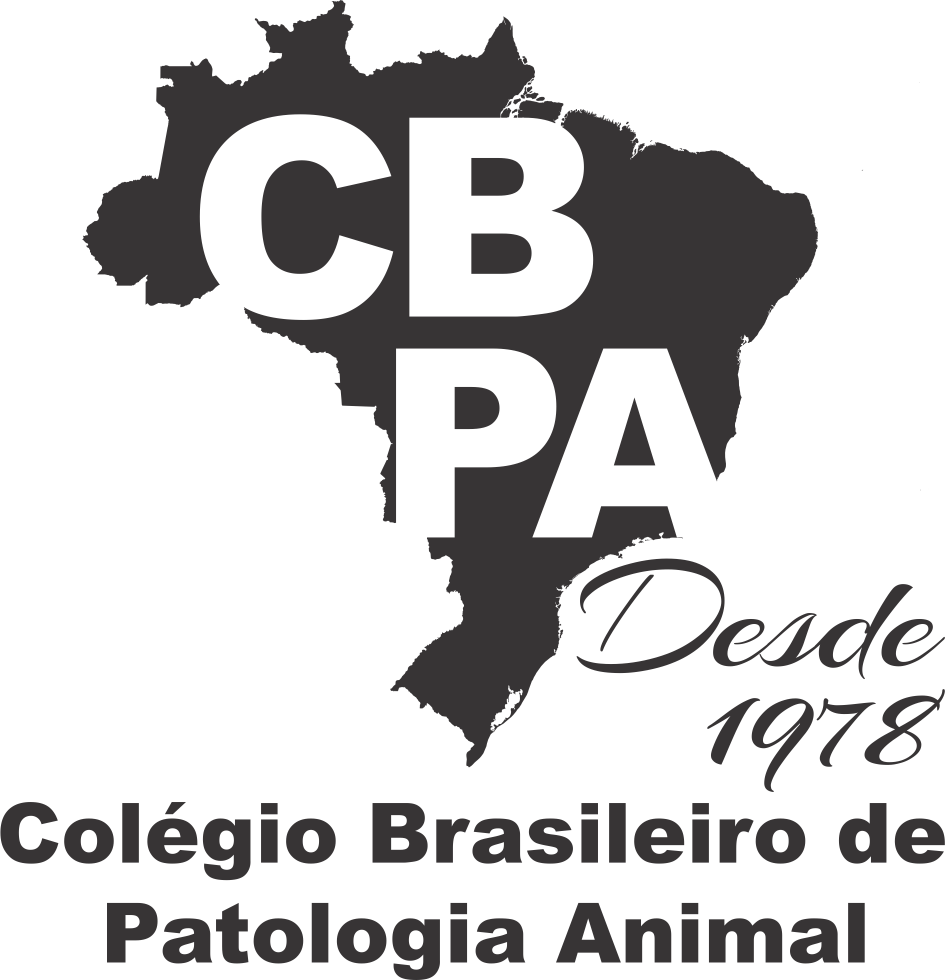Resultado da pesquisa (64)
Termo utilizado na pesquisa Salmonella
#61 - Drug resistance in Salmonella isolated from chicken and turkey breeder flocks
Abstract in English:
Studies were conducted to determine drug resistance in Salmonella isolated using the plate dilution method. The following drugs were used: ampicillin, sulphodiazine, oxytetracycline, kanamycin, chloramphenicol, gentamicin, polymixin B, nalidixic acid, dehydrostreptomycin and nitrofurazone. Twentyfour Salmonella strains isolated from apparently healthy chicken and turkey breeder flocks were examined. The following strains were tested: Eleven S. typhimurium, two S. saintpaul, two S. eimsbuettel and nine S. arizonae 18:z4,z32:- (Ar. -7:1, 7, 7:-). All these strains presented a resistance level below 2 μg of the base per ml of the culture medium when following drugs were used: gentamicin, ampicillin, kanamycin, polymycin. A resistance level of 2 or 5 μg/ml was found with the following: streptomycin, chloramphenicol, nalidixic acid and oxytetracycline. The strain isolated from turkeys showed a resistance level of 5 μg/ml with nitrofurazone while those isolated from chickens showed a resistance of 10 μg/ml. The only exception was S. typhimurium strain 185 which showed resistance to 20 μg/ml of the same drug. All these strains tested were resistant to sulphadiazine.
Abstract in Portuguese:
Utilizando-se o método de diluição em placa, foram determinados os níveis de resistência de amostras de Salmonella isoladas de galinhas e perus às seguintes drogas: ampicilina, sulfadiazina, oxitetraciclina, sulfato de canamicina, cloranfenicol, sulfato de gentamicina, poliximina B, ácido nalidíxico, sulfato de diidroestreptomicina e nitrofurazona. Foram analisadas 24 amostras de samonelas isoladas de espécimens colhidas de um lote de perus e de outro de galinhas reprodutoras aparentemente normais. Foram usadas as seguintes amostras: onze S. thyphimurium, duas S. saintpaul, duas S. eimsbuettel e nove S. arizonae 18: z4,z32:- (Ar. 7-1,7,8:-). Todas as amostras apresentaram níveis de resistência inferiores a 2 μg/ml frente às seguintes drogas: gentamicina, ampicilina, canamicina, polimixina; e níveis de 2 ou 5 μg/ml, frente às seguintes: estreptomicina, cloranfenicol, ácido nalidíxico, e oxitetraciclina. As amostras isoladas de perus apresentaram níveis de 5 μg/ml à nitrofurazona, enquanto que naquelas oriundas de galinhas, os níveis alcançaram até 10 μg/ml. A única exceção foi apresentada por S. typhimurium 185 que se mostrou resistente a 20 μg/ml da mesma droga. Todas as amostras estudadas foram resistentes à sulfadiazina.
#62 - Salmonella contamination in animal-derived-meals used in feed manufacturing
Abstract in English:
From three feed factories in the State of São Paulo, Brasil, 204 samples of animal-derived meals were collected, of which 158 were meat-meals, 25 were feather-meals, 16 were feather and viscera-meals, three were viscera-meals and two were bone-meals. All of them were-t:o be employed in feed mixtures. The samples were bacteriologically processed and from the total 204, as many as 77 were contaminated with salmonellae, from one to six serotypes being identified in individual samples. The proportion of infected samples were respectively: 39% of the meat-meals, 16% of the feather-meals, 63% of the feather and viscera-meals, 33% of the viscera-meals and 50% of the bone-meals. The most frequent represented serotypes were Salmonella cerro (19 samples) and S. havana (17 samples). Better results were obtained by the use of selenitenovobiocin broth than by employement of tetrathionate-novobiocin broth, in both cases after a pre-enrichment in Ringer 1/4.
Abstract in Portuguese:
Foram analisadas 204 amostras de farinhas de origem animal, empregadas na elaboração de rações em três fábricas situadas no Estado de São Paulo, correspondendo a 158 amostras de farinha de carne, 25 amostras de farinha de pena, 16 amostras de farinha de pena e víscera, três amostras de farinha de vísceras e duas amostras de farinha de osso. Das 204 amostras, 77 estavam contaminadas por Salmonella. Essas 77 amostras, individualmente albergavam salonelas de um a seis sorotipos. O percentual de positividade foi de 39%, 16%, 63%, 33% e 50%, respectivamente, para as farinhas: de carne, de pena, de pena e víscera, de víscera e osso. Os sorotipos mais freqüentes foram Salmonella cerro (19 cepas) e S. havana (17 cepas). Melhores resultados foram conseguidos a partir do caldo selenito-novobiocina, com relação ao caldo tetrationatonovobiocina, após pré-enriquecimento das amostras em solução de Ringer 1/4.
#63 - Salmonellae from slaughtered pigs of Pará, Brazil
Abstract in English:
The bacteriological processing of the submandibular lymphnodés of 400 slaughtered pigs from 37 different rural holdings of 9 districts from the island Ilha do Marajó and nordeast of the state Para, Brazil, revealed the isolation of 51 (12,57%) salmonellae belonging to 6 serogroups and the following 10 serotypes: S. avonmouth 18 (35.29%), S. seremban 16 (31.37%), S. typhimurium 6 (11.76%), S. java and S. remo 3 (5.88%), and S. newport, S. miami, S. münster, S. oslo and S. tshiongwe once (1.96%). The most prevalent serotypes S. avonmouth and S. seremban found in this area were considered exotic types for pigs. The swine breeding in this area is very primitive and the pigs were of native type without a defined breed. The pigs are living free near the houses and on surrounding fields. The feed consisted mainly of plants, roots, fruits, insects, and other invertebrates found in the soH and·of the rest of slaughtered animals or cadavers found on the field.
Abstract in Portuguese:
O exame bacteriológico de linfonodos submandibulares de 400 suínos de abate oriundos de 37 propriedades de 9 municípios da Ilha de Marajá e da região nordeste do Estado do Pará, Brasil, revelou o isolamento de 51 (12,57%) salmonelas, pertencentes a seis sorogrupos e a 10 sorotipos, sendo 18 (35,29%) S. avonmouth, 16 (31,37%) S. seremban, 6 (11,76%) S. typhimurium, 3 (5,88%) S. java e S. remo, e uma (1,96%) S. newport, S. miami, S. münster, S. oslo e S. tshiongwe. Os sorotipos S. avonmouth e S. seremban, os mais prevalentes na região, são considerados exóticos para o suíno. A criação de suínos é primitiva, particularmente na Ilha de Marajó, onde os animais nativos, sem raça definida, sã9 criados soltos ao redor das residências e nos campos vizinhos. A principal alimentação consiste em plantas, raízes, frutas, insetos e outros invertebrados encontrados no solo e restos de animais abatidos ou cadáveres encontrados no campo.
#64 - Biochemical behavior and antigenic composition of Salmonella gallinarum and S. pullorum cultores isolated in Brazil
Abstract in English:
The biochemical behavior of 39 cultures of Salmonella gallinarum and S. pullorum, isolated from natural outbreaks in birds, revealed that 14 (35.9%) posessed characteristics of S. gallinarum, and 25 (64.1 %) of S. pullorum. Screening by the ammonium sulfate precipitation test did not reveal the gresence of "variant" cultures. The antigenic structure of the 39 cultures was characterized by a high concentration of specific factor 9, absence or only traces of partial factor 122 and moderate quantities of partial factor 123, indicating that all 39 cultures were of the standard type. The uniformity of the antigenic composition and small quantitative variation of the antigenic factors of each of the cultures, indicate that the outbreaks of pullorum disease and fowl typhoid; occurring in the last three years, most likely originated from native strains existing in Brazil for several years.
Abstract in Portuguese:
O comportamento bioquímico de 39 culturas de Salmonella gallinarum e S. pullorum, isoladas de fooos naturais em aves, revelou que 14 (35,9%) apresentaram as características de S. gallinarum e 25 (64,1 %) de S. pullorum. A triagem pelo teste de precipitação pelo sulfato de amônia não acusou a presença de culturas "variantes" entre elas. A estrutura antigênica das 39 culturas caracterizou-se pela alta concentração do fator específico 9, ausência ou apenas traços do fator parcial 122 e moderada quantidade do fator parcial 123, mostrando tratar-se tão somente de culturas "padrões". A uniformidade da fórmula antigênica e a pouca variação quantitativa dos fatores antigênicos de cada uma das culturas permitem supor que os focos de pulorose e de tifo aviário, ocorridos nos últimos três anos, procedem de culturas autóctones já existentes no país há muitos anos.








